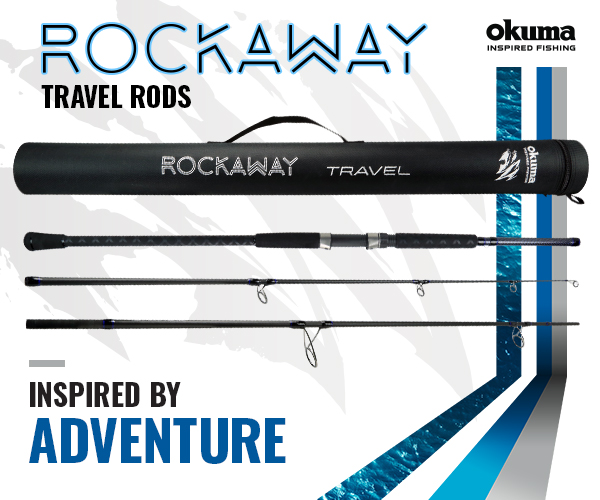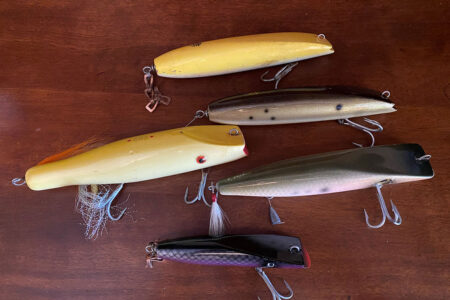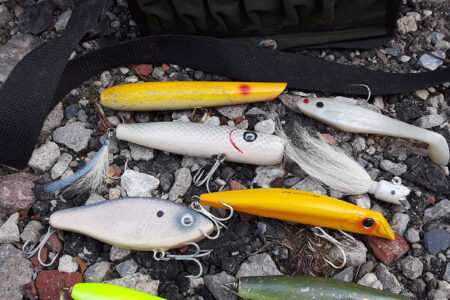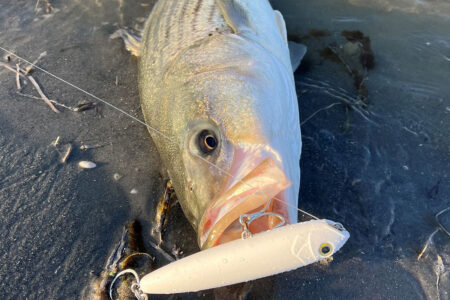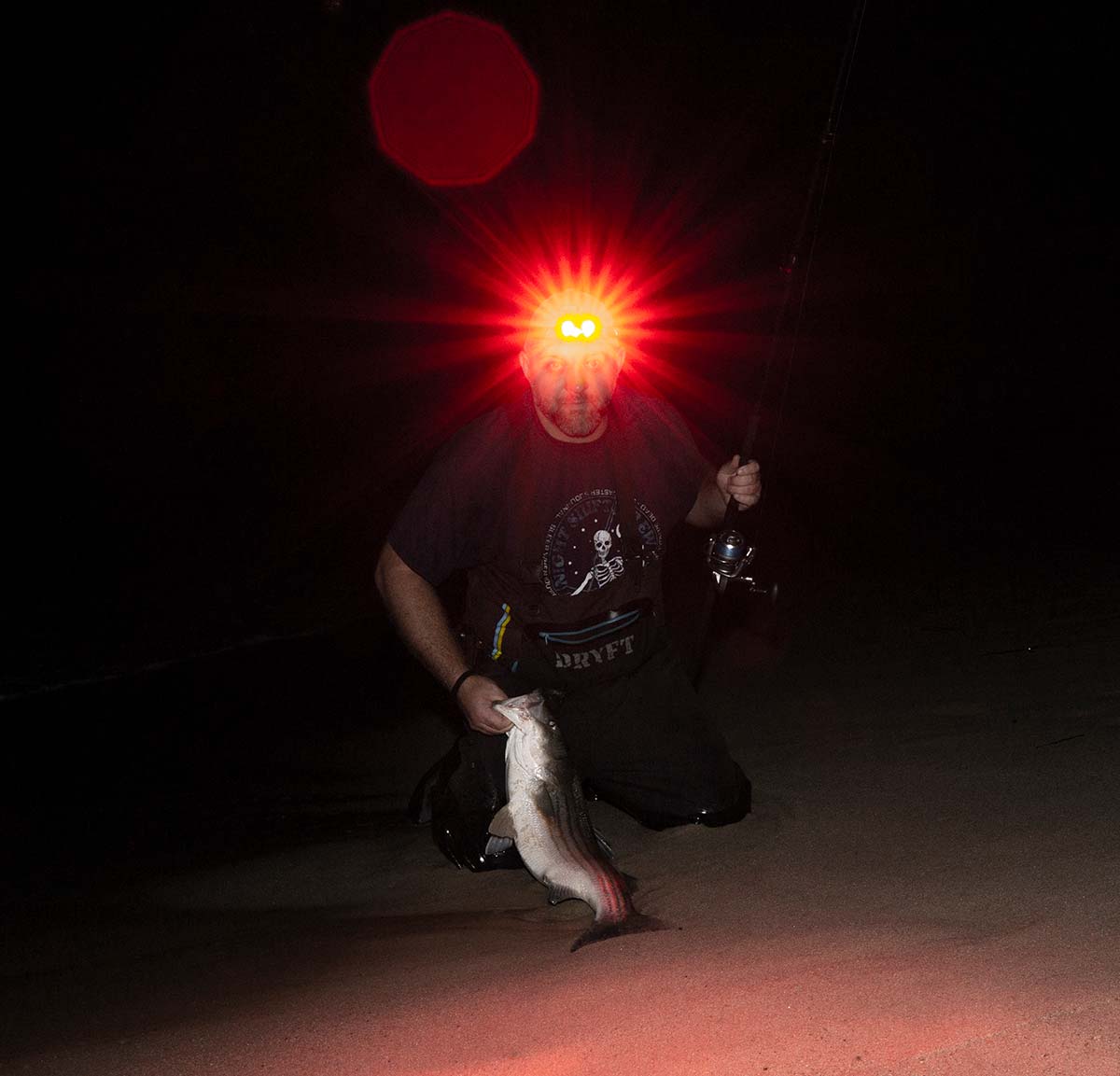
Overusing your light at night is one of the cardinal sins of the surf.
I was having a good night, fishing a sizeable boulder field, having racked up 20 fish to the low-20-pound range in only a couple hours. After releasing a fun-sized 16-pounder, I noticed my leader was feeling a little rough. I held it up to my face, but I couldn’t really see anything in the dark. Deciding that I’d need to risk turning on my red light to take a look, I reached up to the headlamp and flipped on the light- and it came on blindingly white! The red filter had been pushed down and I hadn’t realized. I instantly tried to cover up the light with my hand, but it had shone directly onto the water. Cursing, now seeing spots, I pushed the red filter up over the light, and proceeded to check my leader. It was indeed a bit rashed-up, so I changed it, which only took about a minute. The whole time I was angry and worried about my light slip-up.
Once I got back to fishing, it was clear I made a huge mistake. While I had been getting hits every few casts before the mistake, I first went 10 minutes without even a touch, then 30 minutes without landing a fish. I tried every plug in my bag and even moved around a bit, but nothing worked. I also noticed that the pops and splashes of both bait and stripers had totally stopped, like the whole area had gone dead. After an hour of frustration, I eventually just gave up and left. There’s no doubt: that one, brief flash of bright white light ruined a great night of fishing, and I’ll never forget it!
Shining your light on the water is a cardinal sin in the surf. I’ve heard anglers say that lights don’t really bother stripers; I can assure you this is not true. The story above is just one example, but I’ve experienced it a few times. It’s especially true in dark places, in shallow water, or if I’m far out into the water. For example, if you’re on a lonely, quiet stretch of sandy beach with no houses around, a bright headlamp can be destructive to your chances of catching anything. But, I think it’s even worse if you’re on a rock even just a couple dozen feet from shore, and the further out, the more of an impact it has. The world out on the water at night is very dark, and any light is very alien; back at shore light pollution from buildings, bridges, cars, etc is a bit more normal, and the fish get used to it. But even then, shining a bright light directly on the water is still a no-go- especially if it’s a pure white light.
Shining a light on the water doesn’t just spook stripers, I believe strongly you should be more concerned about what light does to the bait. The obvious first impact is the bait is going to be frightened away by the light. It may never come back, and then there is no reason for stripers to be in your area, and they may just move on. This is why even a few moments of light can ruin an entire night of fishing, even if stripers are moving around. Also, I ascribe to the theory that light can put an entire area “on edge.” That is, shining a light can spook all the life in the water in front of you. This doesn’t mean it leaves, but if it’s hiding or acting really nervous, stripers can pick up on this. I think it can make them spooky and fussy, making them really hard to catch. I’ve seen this firsthand with all sizes of fish, but I feel big fish in particular are most sensitive to it.
Besides simply never shining your light directly on the water, I think there are a couple other things you can do to lessen your impact if you have to use a light. The first is simply using a modest, dim light. The use of very bright lights has been increasing lately, as ultra-bright headlamps can be bought for less than $15 and some of these lights are as bright as a car headlight. However, as fun as these lights might be on the beach, there is no need to have a light that bright for fishing. You’re only decreasing your chances of catching fish, while also announcing exactly where you are for all other anglers in the area to come join you. I’d also urge you to consider simply always using a red light, except in emergencies. Red lights tend to be a lot dimmer, and red light doesn’t penetrate into the water column as far as white light at the same intensity. Red light also preserves your night vision, which is an added bonus. Finally, I also think constantly turning on and off your light or swinging it all over the water is a lot worse than turning it on once or twice during a tide; be judicious, and really think about if you absolutely need light. Stripers are sensitive to change, and a blinking or constantly moving light seems to be a lot worse than a dim, steady source. It may sound a bit silly, but I often think: is turning my light on right now worth potentially missing the fish of a lifetime? If you ask yourself the same question, I bet you’ll find you use a light a whole lot less this season.
